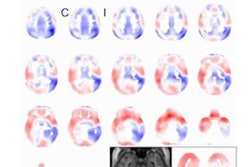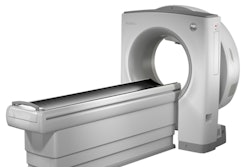Dear Molecular Imaging Insider,
An uptick in diagnostic imaging for Alzheimer's disease is expected as the global population rapidly ages and cases of the disease continue to increase. A new artificial intelligence (AI) algorithm that speeds up PET image acquisition time -- without sacrificing image quality -- could help centers deal with the growing workload.
In this edition's Insider Exclusive, we bring you a study by Chinese researchers who developed an AI denoising model called MCDNet-2. With the model, the acquisition of PET images for detecting beta-amyloid accumulation appears to be four times faster.
PET also is providing a look at the mechanisms driving Alzheimer's disease, as in a study that showed for the first time how a triple threat of brain activity drives dementia in these patients.
In oncology research, PET is highly valuable for predicting patient response to cancer treatment, as we reported in the following stories:
- Dutch investigators used an experimental PET tracer synthesized by Bristol Myers Squibb (F-18 BMS986192) to identify early immunotherapy responders.
- Some patients with liver cancer were shown to respond early after transarterial radioembolization using an experimental PET radiotracer called F-18 fluorocholine.
- Johns Hopkins University clinicians analyzed F-18 DCFPyL-PET/CT scans to assess patient response to investigational bipolar androgen therapy for prostate cancer.
- A Chinese group fine-tuned a PET radiotracer so that its uptake in tumors is twice that of its already experimental precursors.
In heart disease research, cardiac PET showed the battle isn't over for some Vietnam War veterans. Emory University researchers found more than 70% of veterans with post-traumatic stress disorder have signs of impaired heart function.
Atherosclerosis and ischemia were topics in additional cardiac PET coverage:
- A new gallium-68-labeled tracer showed promise in vivo identifying early activity in artery walls involved in the progression of atherosclerosis.
- Researchers at Brigham and Women's Hospital in Boston showed that myocardial flow reserve on PET/CT can help identify patients with aortic stenosis.
Be sure to check back regularly for more news in your Molecular Imaging Community!





















